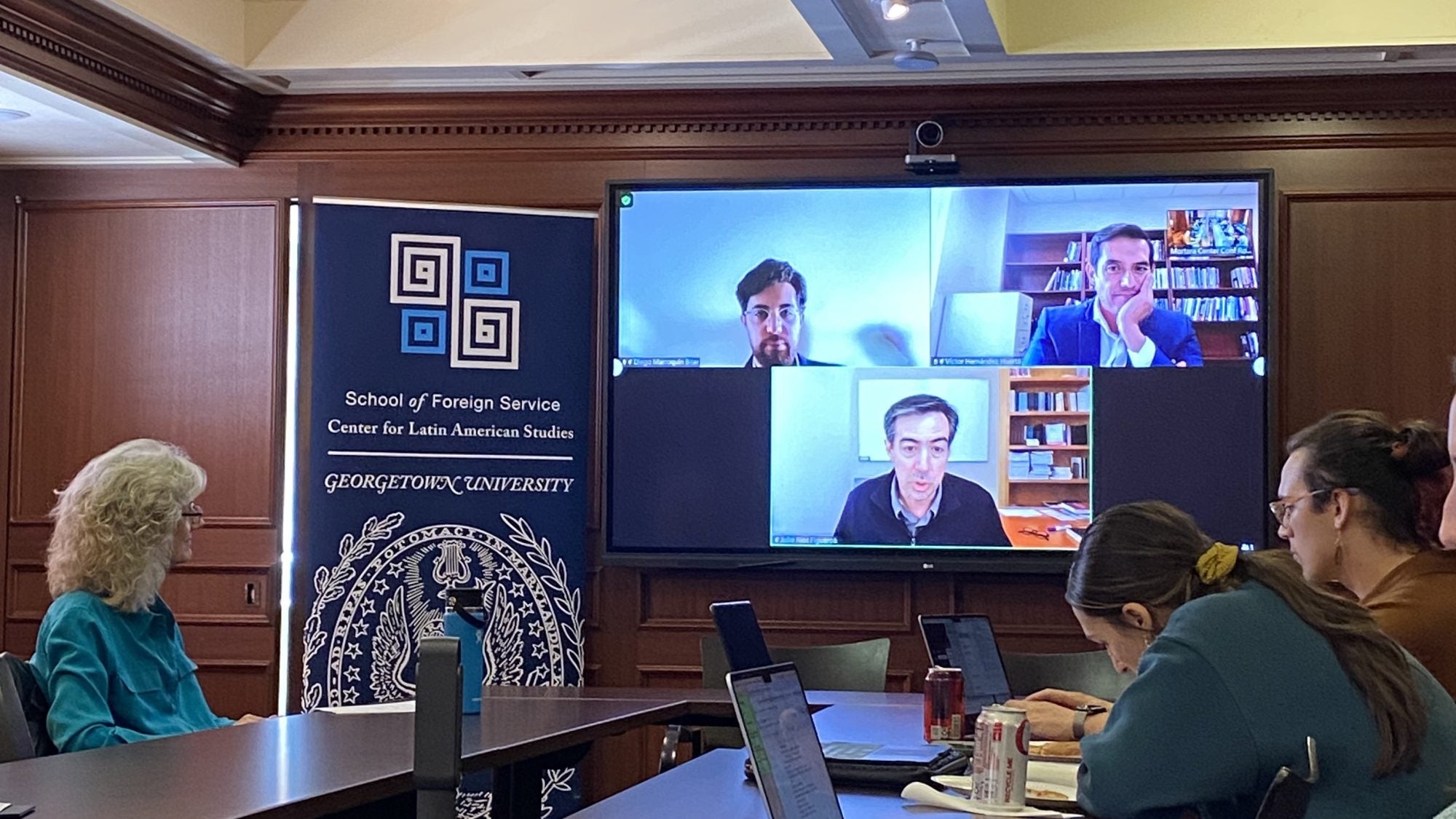On Thursday, October 3rd, 2024, the Center for Latin American Studies (CLAS) hosted the first “LAC MOMENTS” event of the 2024-2025 school year. “LAC Moments” provides the CLAS community with an opportunity to consider important developments, or “moments of focus,” in Latin America and the Caribbean. The topic, LAC MOMENTS: The Transition of Power in Mexico, delved into the implications of several key constitutional reforms under review in Mexico.
The newly elected first female President of Mexico, Claudia Sheinbaum, is expected to move forward with key constitutional reforms she inherited from her predecessor, Andrés Manuel López Obrador (AMLO). How will the new president address — and advance — these institutional challenges and changes? Three invited experts were tasked with considering these questions: Professor Victor Hernandez-Huerta (Department of Politics and International Affairs, Wake Forest University), Mr. Diego Marroquín Bitar (Woodrow Wilson Center and Hoya!), and Professor Julio Rios Figueroa (Department of Law, ITAM, Mexico).
Professor Hernandez-Huerta opened the discussion with the bold claim that, if the electoral reforms are approved, Mexico risks crossing a “red line” where democracy would no longer be viable. He pointed out that the new reforms consolidate power in the executive branch and the military, while simultaneously diminishing the influence of academic and media institutions. He agreed with Professor Rios Figueroa, who highlighted that the proposed judicial reform — which includes the popular election of judges, a tribunal of judicial discipline, and “faceless” (anonymous) judges — would likely increase corruption. Mr. Marroquín Bitar emphasized the national and regional economic implications of these reforms, noting that they could undermine Mexico’s commitments under the USMCA and leave thousands of Mexican and American citizens without work.
The panel concluded with a Q&A session, where attendees grappled with questions about the path forward. It was noted that the constitutional reforms were proposed and enacted legally and enjoy widespread support throughout the country. Proposed solutions centered on educating and involving the public in the political process. Professor Hernandez-Huerta astutely pointed out that Mexican citizens are “disenchanted with democracy” and emphasized that it is the responsibility of both the government and international observers to change this narrative.
CLAS extends its thanks to Professor Hernandez-Huerta, Professor Rios Figueroa, and Mr. Marroquín Bitar for sharing their insights on this continuously developing topic.

